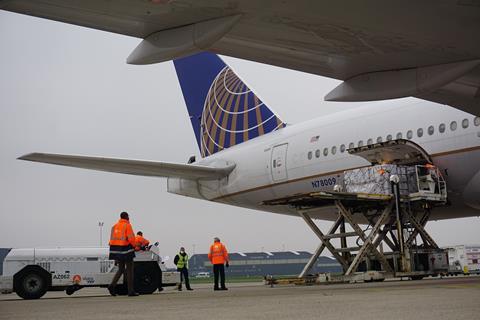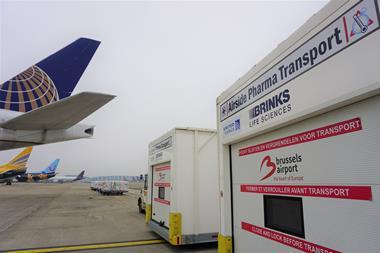
A surge in freighter services and bellyhold cargo saw Brussels Airport overcome a drop in express shipments to handle 4% more airfreight in January compared with the same month in 2021, and 10% over January 2019.
The main Belgian hub saw throughput of 60,645 tons in January, an increase due partly to the disruption of global cargo supply chains. Earlier this year, the airport reported 2021 flown airfreight volumes rose 30.6% compared to 2020.
Integrator services experienced a 25% decline after the continued strong growth of recent months. Trucked airfreight saw volumes drop by 8% compared to January 2021.
Compared to January 2021, growth in freight transport continued mainly in the freighter segment (+24%), but also in belly cargo (+51%), due to the severe travel restrictions and the resulting decline in passenger flights a year ago.
In pure volumes, Asia remains the most important region for the key European hub, followed by the US.
Full cargo flights increased very slightly by 0.9% compared to January 2021. The share of cargo flights carried out by passenger aircraft is declining but, said an airport spokesperson, remains “an important additional connectivity option for destinations such as Brazil, China and Japan.”
The spokesperson added: “The transport of vaccines to and from Brussels Airport continued. In total, since the start of vaccine shipments in November 2020, 900 million vaccines have been transported, confirming more than ever the role of Brussels Airport as the main European pharmaceutical hub.”
More than 800,000 passengers used Brussels in January, an increase of 183% compared to January 2021, but still down by 52% compared to the same period before the crisis, in 2019.










